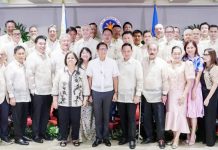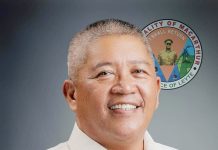Authored by Rep. Ongchuan

TACLOBAN CITY – A legislative proposal seeking to overhaul the government’s flagship anti-poverty program could mark a major shift in how the country addresses chronic poverty—not just by offering support, but by fostering long-term self-reliance.
House Bill No. 604, filed by Northern Samar 1st District Representative Edwin Ongchuan, proposes critical amendments to Republic Act No. 11310 or the Pantawid Pamilyang Pilipino Program (4Ps) Act, expanding its scope to include livelihood and skills training as a central component of the program.
The move is seen as a timely response to longstanding calls for the 4Ps to evolve from simply providing conditional cash transfers into a more holistic intervention that builds economic capacity among the poor.
“This proposal is about breaking the cycle of poverty—not just managing it. The future of 4Ps is not only about surviving poverty but also about finally escaping it,” Ongchuan said in a statement.
Under the proposed measure, household-beneficiaries will continue to receive cash grants to support education, health, and nutrition, but with an added condition: they must complete at least two accredited livelihood or skills training programs. These would be facilitated by national agencies such as Technical Education Skills and Development Authority (TESDA), Department of Trade and Industry or DTI, Department of Labor and Employment (DOLE), Department of Science and Technology (DOST), Department of Agriculture or DA, and Department of Social Welfare and Development (DSWD).
This represents a paradigm shift—from welfare-based support to skills-based empowerment—where recipients are expected to transition into productive work or entrepreneurship, ultimately reducing long-term dependence on government aid.
The bill also calls for an increase in the baseline amounts of educational and health grants to reflect the rising cost of living and inflation, ensuring the program remains responsive to real household needs.
These adjustments aim to maintain the effectiveness of the financial assistance component while incentivizing continued participation in the enhanced program.
By integrating livelihood training as a conditionality, HB 604 underscores a broader vision for poverty alleviation—one that promotes economic inclusion, personal dignity, and self-sufficiency. It seeks to transform the 4Ps from a short-term safety net into a long-term springboard toward employment, entrepreneurship, and community-based productivity.
The DSWD, which oversees 4Ps implementation, has long emphasized the importance of “graduation”—when beneficiaries no longer need assistance. This bill offers a clearer roadmap to achieving that goal.
Since its institutionalization in 2019, the 4Ps program has benefited over 4 million households nationwide, providing financial aid in exchange for compliance with education and health conditions. It is widely regarded as a key poverty reduction strategy, but has also drawn calls for innovation, particularly around exit mechanisms and sustainable livelihood support.
House Bill No. 604 reframes poverty alleviation from being purely reactive to being proactive and empowering. With livelihood training at its core, the bill envisions a version of 4Ps that not only meets immediate needs, but also builds pathways to long-term resilience and prosperity.
“This is social protection with purpose,” Ongchuan added. “By investing in people’s skills, we are investing in their future.”
(JOEY A. GABIETA)



